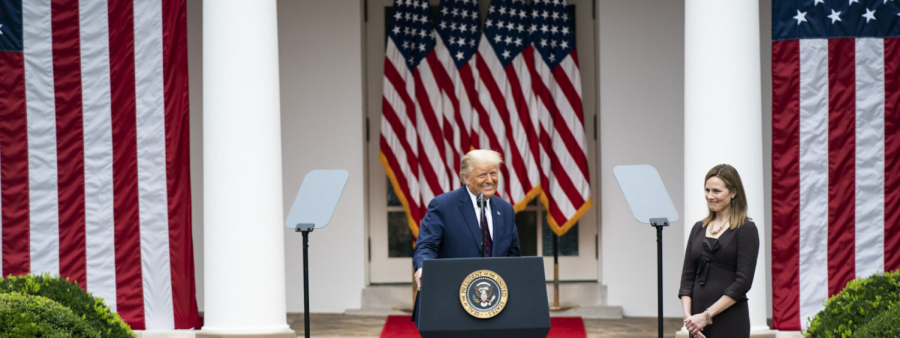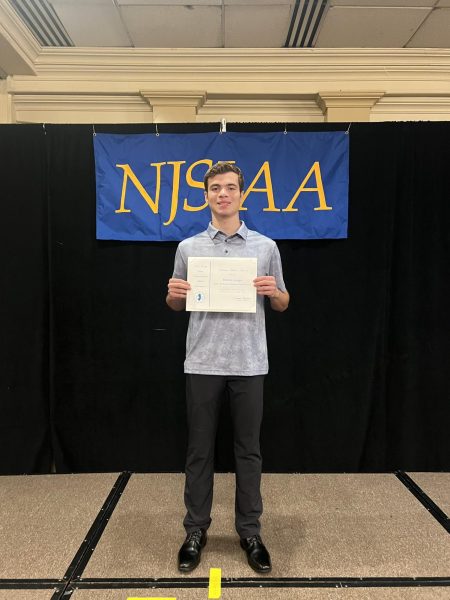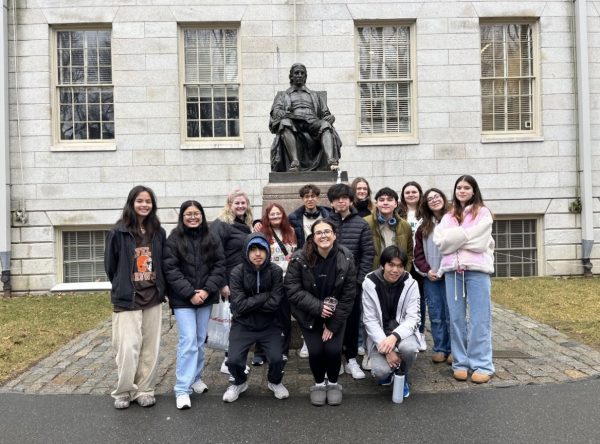Amy Coney Barrett: The Controversial Fifth Female Supreme Court Justice
The following editorial is the viewpoint of the writer only and does not reflect the opinions of the Cat’s Eye View staff, as a whole, or the administration, faculty or students of Henry P. Becton Regional High School.
President Trump, pictured with his Supreme Court nominee, Amy Coney Barrett.
Following the 52-48 vote by the Senate, Amy Coney Barrett was confirmed to the Supreme Court, on October 26th. The Notre Dame Law school graduate and mother of 7 became the fifth woman ever to serve as a Supreme Court Justice. Often known as the protegee of Justice Anton Scalia, for whom she clerked, Judge Barrett supports an originalist interpretation of the Constitution.
Judge Barrett lives with her husband, Jesse in South Bend, Indiana, a former federal prosecutor who is now with a private firm. The two have 7 children, including 2 adopted from Haiti. Having a large family is not new to Barrett, as she is the oldest of 7 children.
In her opening speech during confirmation, Judge Barrett thanked President Trump for “entrusting me with this profound responsibility”, which she stated was the “honor of a lifetime”. President Trump succeeded in tipping the court demographic further to the right, prior to the 2020 presidential election, in which Democrat Joe Biden was chosen as the next president of the United States.
Enraged Democrats pointed out the rank hypocrisy of Mitch McConnell’s caucus, considering that 4 years ago, McConnell refused to even give President Barack Obama’s nominee Merrick Garland a hearing. President Obama nominated Garland to replace late Antonin Scalia, more than 8 months before the election. Republicans have argued that because they hold the Senate and the presidency, the precedent they set in 2016 does not apply now. Becton’s very own AP Government and Politics teacher, Mr. Carr expresses that Barrett’s nomination was not appropriate, just as the nomination of Neil Gorsuch was not appropriate in 2017. Carr goes on to say that Merrick Garland should have, at least, had a hearing. “But that’s politics in our time. Elections have consequences.”
As reported by Barrett during her hearing, she submitted over 30 years’ worth of material to the committee to be reviewed: 1,800 pages. This amount may seem like a lot, however when comparing this to the 170,000 pages submitted for Justice Elena Kagan, 180,000 for Justice Neil Gorsuch, and over a million for Justice Brett Kavanaugh, Barrett’s number seems very minimal. This was positive for President Donald Trump, as her limited material made it simple for the committee to review in a short period.
“She has limited experience as a federal judge. She is an unapologetic “Originalist,” meaning she will try to make decisions based on what the Founders had in mind when they wrote the Constitution. I think a Justice needs to be more open-minded than that. Antonin Scalia was a brilliant man, but I felt his belief in Originalism kept him from seeing all sides of a case. Of course, I offer the opinion of a layperson, not a lawyer.” Said Mr. Carr, when asked about any concerns he has about the newly inducted justice.
This comes as no surprise, however, given that almost the entirety of her professional career has been spent in academics, working as a law professor. Until her duties on the 7th Circuit Court of Appeals in 2017, she had never worked in the government as a lawyer, worked as a judge, tried a case to verdict, or even argued an appeal.
This short amount of experience alarmed many politicians as Barret’s experience is limited to two years of private practice, fifteen years of teaching experience, and a short stint on an appellate court. There is no telling how her recent confirmation will affect the rest of the upcoming vital court cases, such as the Affordable Care Act and Roe v. Wade.
Becton’s Journalism and School Newspaper advisor, Mrs. Sozzo says, “If she sticks to what she claims, that she believes her job is to interpret the law, then hopefully she can be a fair and impartial Justice.” Mrs. Sozzo recognizes that Barrett is a devout Catholic who belongs to a restrictive church but is hopeful that she makes decisions without letting her biases interfere.
It seems as though Judge Barrett’s record on gun rights and immigration cases imply she would be as reliable a vote to the right of the court, just as late Ginsburg was to the left, according to Jonathan Turley, a professor of law at George Washington University.
Ginsburg maintained one of the most consistent liberal voting records in the history of the court. Barrett has the same consistency and commitment. She is the ultimate deliverable for conservative votes. Judge Barrett’s legal opinions and remarks on abortion and gay marriage have made her popular with the religious right but earned vehement opposition from liberals.
Mrs. Sozzo expresses that she is hopeful about the newest Supreme Court Justice and looks forward to seeing how she votes on cases. We can say that it is up to her to decide what mark she will leave. Mr. Carr would agree, explaining, “It is time to move on and let history decide her legacy.”
Tenzin is excited to be a part of the Cat’s Eye View staff for her sophomore year. She is a hardworking and determined student. Tenzin is a full-year...













